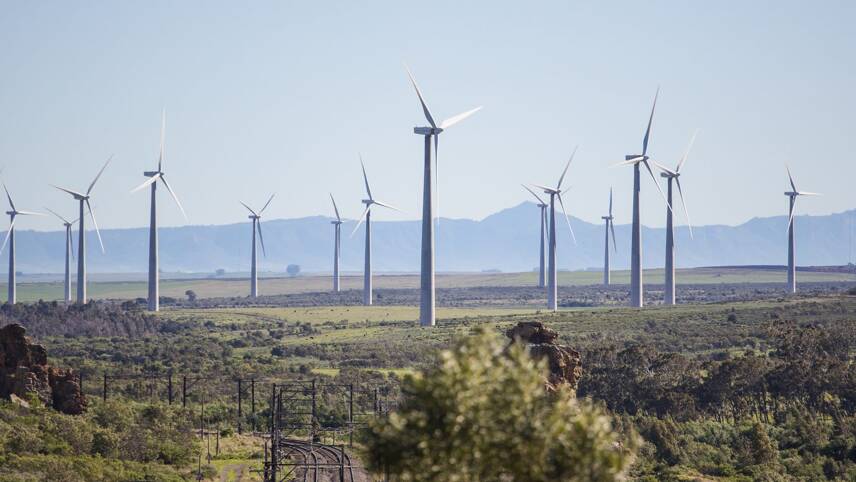Register for free and continue reading
Join our growing army of changemakers and get unlimited access to our premium content

The plan was unveiled today (18 May), with Gutteres describing the energy transition as the “peace project of the 21st century”. Many nations have outlined plans to accelerate their adoption of domestic nuclear and renewable power generation in a bid to end imports of oil and gas from Russia sooner than they had intended before it invaded Ukraine. However, several of these plans, including those from the UK and the EU, also detail intentions to scale oil and gas imports from other places and to increase domestic fossil fuel production if necessary.
“We must end fossil fuel pollution and accelerate the renewable energy transition before we incinerate our only home… Transforming energy systems is low-hanging fruit,” Gutteres said in a video message broadcast to mark the launch of the five-point plan.
“The global energy system is broken and bringing us ever closer to climate catastrophe,” Gutteres added. “While people suffer from high prices at the pump, the oil and gas industry is raking in billions from a distorted market. This scandal must stop.”
The plan is underpinned by a trebling of the level of finance which goes into renewable energy generation, distribution, storage and related training each year. The UN is urging a global effort to bring annual investments past the $4trn mark as soon as possible. Funding should come from both public and private sources.
Another facet of the plan is the ending of subsidies for fossil fuels, which totalled $5.9trn globally in 2020 according to the International Monetary Fund (IMF). The IMF’s calculations included tax breaks and health and environmental damages picked up by the public sector, as well as direct and explicit subsidies. This funding, the UN argues, could and should be redirected to renewables.
Nations agreed at COP26 last November to “accelerate the phasing out of coal and inefficient subsidies for fossil fuels”. The “inefficient” part was added at the last minute, much to the disappointment of most-affected nations and many of the world’s biggest environmental groups.
The UN’s statement today reads: “Fossil fuel subsidies are both inefficient and inequitable. Across developing countries, about half of the public resources spent to support fossil fuel consumption benefits the richest 20% of the population, according to the IMF”.
As well as securing funding for renewables, the UN’s plans call for national governments to work domestically and internationally to “level the playing field” for renewable energy technologies and access.
The organisation is stating that many nations have not looked at policy barriers including lengthy planning, permitting and regulatory processes for developing generation projects. It also states that businesses are looking for incentives in some markets, and clear long-term policy support in all markets. Regarding energy access, the UN’s plan urges nations to consider framing renewable energy technology as a global public good, meaning that it should be available more widely.
Good news, but much more work to be done
The speech from Gutteres came days after the International Energy Agency (IEA) published its latest renewable energy market report, confirming that a record 295GW of new renewable energy generation capacity came online in 2021 – up 6% on 2020 levels.
This figure is set to rise to 320GW this year, the IEA is forecasting, as many key economies lean into renewables as a response to Russia’s war in Ukraine and as part of their continuing economic recovery from Covid-19. 320GW should be equivalent to around 60% of energy capacity additions this year.
Nonetheless, the IEA Is forecasting significant challenges. Its report states: “Unless new policies are implemented rapidly, growth will remain stable in 2023 because solar PV expansion cannot fully compensate for lower hydropower and steady year-on-year wind additions.”
“Ultimately, the forecast of renewable markets for 2023 and beyond will depend on whether new and stronger policies will be introduced and implemented in the next six months,” it adds.
The IEA is continuing to highlight the discrepancies between financial and policy support for renewables between developing and developed nations. Last year, the Agency called for a sevenfold increase in finance for renewables in developing nations by 2030, against 2020 levels.


This comment has been removed by the commenter.
I am surprised that, as an engineer, M. Gutteres should be so enthusiastic about renewable energy, predominantly wind.
Renewables, as a body, have their roots in nature, over which we have utterly no control. Wind is entirely variable, out of our control; grab it when you can get it. The sun shines only during the day, indeed the definition.
At the moment we have nuclear fission for energy production, and let us hope that fusion becomes a practicality, fearsomely difficult though that be.
At the moment, to become at all reliant on renewables is pure folly; they are a bonus where available.
I write as an unrepentant nonagenarian scientist from the nuclear sector, so not entirely uninformed.
Richard Phillips